“We’re at War!”
And We Have Been Since 1776: 214 Years of American War-Making
Danios, loonwatch.com blog, 20 December 2011
Year-by-year Timeline of America’s Major Wars (1776-2011)
1776 – American Revolutionary War, Chickamagua Wars, Second Cherokee War, Pennamite-Yankee War
1777 – American Revolutionary War, Chickamauga Wars, Second Cherokee War, Pennamite-Yankee War
1778 – American Revolutionary War, Chickamauga Wars, Pennamite-Yankee War
1779 – American Revolutionary War, Chickamauga Wars, Pennamite-Yankee War
1780 – American Revolutionary War, Chickamauga Wars, Pennamite-Yankee War
1781 – American Revolutionary War, Chickamauga Wars, Pennamite-Yankee War
1782 – American Revolutionary War, Chickamauga Wars, Pennamite-Yankee War
1783 – American Revolutionary War, Chickamauga Wars, Pennamite-Yankee War
1784 – Chickamauga Wars, Pennamite-Yankee War, Oconee War
1785 – Chickamauga Wars, Northwest Indian War
1786 – Chickamauga Wars, Northwest Indian War
1787 – Chickamauga Wars, Northwest Indian War
1788 – Chickamauga Wars, Northwest Indian War
1789 – Chickamauga Wars, Northwest Indian War
1790 – Chickamauga Wars, Northwest Indian War
1791 – Chickamauga Wars, Northwest Indian War
1792 – Chickamauga Wars, Northwest Indian War
1793 – Chickamauga Wars, Northwest Indian War
1794 – Chickamauga Wars, Northwest Indian War
1795 – Northwest Indian War
1796 – No major war
1797 – No major war
1798 – Quasi-War
1799 – Quasi-War
1800 – Quasi-War
1801 – First Barbary War
1802 – First Barbary War
1803 – First Barbary War
1804 – First Barbary War
1805 – First Barbary War
1806 – Sabine Expedition
1807 – No major war
1808 – No major war
1809 – No major war
1810 – U.S. occupies Spanish-held West Florida
1811 – Tecumseh’s War
1812 – War of 1812, Tecumseh’s War, Seminole Wars, U.S. occupies Spanish-held Amelia Island and other parts of East Florida
1813 – War of 1812, Tecumseh’s War, Peoria War, Creek War, U.S. expands its territory in West Florida
1814 – War of 1812, Creek War, U.S. expands its territory in Florida, Anti-piracy war
1815 – War of 1812, Second Barbary War, Anti-piracy war
1816 – First Seminole War, Anti-piracy war
1817 – First Seminole War, Anti-piracy war
1818 – First Seminole War, Anti-piracy war
1819 – Yellowstone Expedition, Anti-piracy war
1820 – Yellowstone Expedition, Anti-piracy war
1821 – Anti-piracy war (see note above)
1822 – Anti-piracy war (see note above)
1823 – Anti-piracy war, Arikara War
1824 – Anti-piracy war
1825 – Yellowstone Expedition, Anti-piracy war
1826 – No major war
1827 – Winnebago War
1828 – No major war
1829 – No major war
1830 – No major war
1831 – Sac and Fox Indian War
1832 – Black Hawk War
1833 – Cherokee Indian War
1834 – Cherokee Indian War, Pawnee Indian Territory Campaign
1835 – Cherokee Indian War, Seminole Wars, Second Creek War
1836 – Cherokee Indian War, Seminole Wars, Second Creek War, Missouri-Iowa Border War
1837 – Cherokee Indian War, Seminole Wars, Second Creek War, Osage Indian War, Buckshot War
1838 – Cherokee Indian War, Seminole Wars, Buckshot War, Heatherly Indian War
1839 – Cherokee Indian War, Seminole Wars
1840 – Seminole Wars, U.S. naval forces invade Fiji Islands
1841 – Seminole Wars, U.S. naval forces invade McKean Island, Gilbert Islands, and Samoa
1842 – Seminole Wars
1843 – U.S. forces clash with Chinese, U.S. troops invade African coast
1844 – Texas-Indian Wars
1845 – Texas-Indian Wars
1846 – Mexican-American War, Texas-Indian Wars
1847 – Mexican-American War, Texas-Indian Wars
1848 – Mexican-American War, Texas-Indian Wars, Cayuse War
1849 – Texas-Indian Wars, Cayuse War, Southwest Indian Wars, Navajo Wars, Skirmish between 1st Cavalry and Indians
1850 – Texas-Indian Wars, Cayuse War, Southwest Indian Wars, Navajo Wars, Yuma War, California Indian Wars, Pitt River Expedition
1851 – Texas-Indian Wars, Cayuse War, Southwest Indian Wars, Navajo Wars, Apache Wars, Yuma War, Utah Indian Wars, California Indian Wars
1852 – Texas-Indian Wars, Cayuse War, Southwest Indian Wars, Navajo Wars, Yuma War, Utah Indian Wars, California Indian Wars
1853 – Texas-Indian Wars, Cayuse War, Southwest Indian Wars, Navajo Wars, Yuma War, Utah Indian Wars, Walker War, California Indian Wars
1854 – Texas-Indian Wars, Cayuse War, Southwest Indian Wars, Navajo Wars, Apache Wars, California Indian Wars, Skirmish between 1st Cavalry and Indians
1855 – Seminole Wars, Texas-Indian Wars, Cayuse War, Southwest Indian Wars, Navajo Wars, Apache Wars, California Indian Wars, Yakima War, Winnas Expedition, Klickitat War, Puget Sound War, Rogue River Wars, U.S. forces invade Fiji Islands and Uruguay
1856 – Seminole Wars, Texas-Indian Wars, Southwest Indian Wars, Navajo Wars, California Indian Wars, Puget Sound War, Rogue River Wars, Tintic War
1857 – Seminole Wars, Texas-Indian Wars, Southwest Indian Wars, Navajo Wars, California Indian Wars, Utah War, Conflict in Nicaragua
1858 – Seminole Wars, Texas-Indian Wars, Southwest Indian Wars, Navajo Wars, Mohave War, California Indian Wars, Spokane-Coeur d’Alene-Paloos War, Utah War, U.S. forces invade Fiji Islands and Uruguay
1859 Texas-Indian Wars, Southwest Indian Wars, Navajo Wars, California Indian Wars, Pecos Expedition, Antelope Hills Expedition, Bear River Expedition, John Brown’s raid, U.S. forces launch attack against Paraguay, U.S. forces invade Mexico
1860 – Texas-Indian Wars, Southwest Indian Wars, Navajo Wars, Apache Wars, California Indian Wars, Paiute War, Kiowa-Comanche War
1861 – American Civil War, Texas-Indian Wars, Southwest Indian Wars, Navajo Wars, Apache Wars, California Indian Wars, Cheyenne Campaign
1862 – American Civil War, Texas-Indian Wars, Southwest Indian Wars, Navajo Wars, Apache Wars, California Indian Wars, Cheyenne Campaign, Dakota War of 1862,
1863 – American Civil War, Texas-Indian Wars, Southwest Indian Wars, Navajo Wars, Apache Wars, California Indian Wars, Cheyenne Campaign, Colorado War, Goshute War
1864 – American Civil War, Texas-Indian Wars, Navajo Wars, Apache Wars, California Indian Wars, Cheyenne Campaign, Colorado War, Snake War
1865 – American Civil War, Texas-Indian Wars, Navajo Wars, Apache Wars, California Indian Wars, Colorado War, Snake War, Utah’s Black Hawk War
1866 – Texas-Indian Wars, Navajo Wars, Apache Wars, California Indian Wars, Skirmish between 1st Cavalry and Indians, Snake War, Utah’s Black Hawk War, Red Cloud’s War, Franklin County War, U.S. invades Mexico, Conflict with China
1867 – Texas-Indian Wars, Long Walk of the Navajo, Apache Wars, Skirmish between 1st Cavalry and Indians, Snake War, Utah’s Black Hawk War, Red Cloud’s War, Comanche Wars, Franklin County War, U.S. troops occupy Nicaragua and attack Taiwan
1868 – Texas-Indian Wars, Long Walk of the Navajo, Apache Wars, Skirmish between 1st Cavalry and Indians, Snake War, Utah’s Black Hawk War, Red Cloud’s War, Comanche Wars, Battle of Washita River, Franklin County War
1869 – Texas-Indian Wars, Apache Wars, Skirmish between 1st Cavalry and Indians, Utah’s Black Hawk War, Comanche Wars, Franklin County War
1870 – Texas-Indian Wars, Apache Wars, Skirmish between 1st Cavalry and Indians, Utah’s Black Hawk War, Comanche Wars, Franklin County War
1871 – Texas-Indian Wars, Apache Wars, Skirmish between 1st Cavalry and Indians, Utah’s Black Hawk War, Comanche Wars, Franklin County War, Kingsley Cave Massacre, U.S. forces invade Korea
1872 – Texas-Indian Wars, Apache Wars, Utah’s Black Hawk War, Comanche Wars, Modoc War, Franklin County War
1873 – Texas-Indian Wars, Comanche Wars, Modoc War, Apache Wars, Cypress Hills Massacre, U.S. forces invade Mexico
1874 – Texas-Indian Wars, Comanche Wars, Red River War, Mason County War, U.S. forces invade Mexico
1875 – Conflict in Mexico, Texas-Indian Wars, Comanche Wars, Eastern Nevada, Mason County War, Colfax County War, U.S. forces invade Mexico
1876 – Texas-Indian Wars, Black Hills War, Mason County War, U.S. forces invade Mexico
1877 – Texas-Indian Wars, Skirmish between 1st Cavalry and Indians, Black Hills War, Nez Perce War, Mason County War, Lincoln County War, San Elizario Salt War, U.S. forces invade Mexico
1878 – Paiute Indian conflict, Bannock War, Cheyenne War, Lincoln County War, U.S. forces invade Mexico
1879 – Cheyenne War, Sheepeater Indian War, White River War, U.S. forces invade Mexico
1880 – U.S. forces invade Mexico
1881 – U.S. forces invade Mexico
1882 – U.S. forces invade Mexico
1883 – U.S. forces invade Mexico
1884 – U.S. forces invade Mexico
1885 – Apache Wars, Eastern Nevada Expedition, U.S. forces invade Mexico
1886 – Apache Wars, Pleasant Valley War, U.S. forces invade Mexico
1887 – U.S. forces invade Mexico
1888 – U.S. show of force against Haiti, U.S. forces invade Mexico
1889 – U.S. forces invade Mexico
1890 – Sioux Indian War, Skirmish between 1st Cavalry and Indians, Ghost Dance War, Wounded Knee, U.S. forces invade Mexico
1891 – Sioux Indian War, Ghost Dance War, U.S. forces invade Mexico
1892 – Johnson County War, U.S. forces invade Mexico
1893 – U.S. forces invade Mexico and Hawaii
1894 – U.S. forces invade Mexico
1895 – U.S. forces invade Mexico, Bannock Indian Disturbances
1896 – U.S. forces invade Mexico
1897 – No major war
1898 – Spanish-American War, Battle of Leech Lake, Chippewa Indian Disturbances
1899 – Philippine-American War, Banana Wars
1900 – Philippine-American War, Banana Wars
1901 – Philippine-American War, Banana Wars
1902 – Philippine-American War, Banana Wars
1903 – Philippine-American War, Banana Wars
1904 – Philippine-American War, Banana Wars
1905 – Philippine-American War, Banana Wars
1906 – Philippine-American War, Banana Wars
1907 – Philippine-American War, Banana Wars
1908 – Philippine-American War, Banana Wars
1909 – Philippine-American War, Banana Wars
1910 – Philippine-American War, Banana Wars
1911 – Philippine-American War, Banana Wars
1912 – Philippine-American War, Banana Wars
1913 – Philippine-American War, Banana Wars, New Mexico Navajo War
1914 – Banana Wars, U.S. invades Mexico
1915 – Banana Wars, U.S. invades Mexico, Colorado Paiute War
1916 – Banana Wars, U.S. invades Mexico
1917 – Banana Wars, World War I, U.S. invades Mexico
1918 – Banana Wars, World War I, U.S invades Mexico
1919 – Banana Wars, U.S. invades Mexico
1920 – Banana Wars
1921 – Banana Wars
1922 – Banana Wars
1923 – Banana Wars, Posey War
1924 – Banana Wars
1925 – Banana Wars
1926 – Banana Wars
1927 – Banana Wars
1928 – Banana Wars
1930 – Banana Wars
1931 – Banana Wars
1932 – Banana Wars
1933 – Banana Wars
1934 – Banana Wars
1935 – No major war
1936 – No major war
1937 – No major war
1938 – No major war
1939 – No major war
1940 – No major war
1941 – World War II
1942 – World War II
1943 – Wold War II
1944 – World War II
1945 – World War II
1946 – Cold War (U.S. occupies the Philippines and South Korea)
1947 – Cold War (U.S. occupies South Korea, U.S. forces land in Greece to fight Communists)
1948 – Cold War (U.S. forces aid Chinese Nationalist Party against Communists)
1949 – Cold War (U.S. forces aid Chinese Nationalist Party against Communists)
1950 – Korean War, Jayuga Uprising
1951 – Korean War
1952 – Korean War
1953 – Korean War
1954 – Covert War in Guatemala
1955 – Vietnam War
1956 – Vietnam War
1957 – Vietnam War
1958 – Vietnam War
1959 – Vietnam War, Conflict in Haiti
1960 – Vietam War
1961 – Vietnam War
1962 – Vietnam War, Cold War (Cuban Missile Crisis; U.S. marines fight Communists in Thailand)
1963 – Vietnam War
1964 – Vietnam War
1965 – Vietnam War, U.S. occupation of Dominican Republic
1966 – Vietnam War, U.S. occupation of Dominican Republic
1967 – Vietnam War
1968 – Vietnam War
1969 – Vietnam War
1970 – Vietnam War
1971 – Vietnam War
1972 – Vietnam War
1973 – Vietnam War, U.S. aids Israel in Yom Kippur War
1974 – Vietnam War
1975 – Vietnam War
1976 – No major war
1977 – No major war
1978 – No major war
1979 – Cold War (CIA proxy war in Afghanistan)
1980 – Cold War (CIA proxy war in Afghanistan)
1981 – Cold War (CIA proxy war in Afghanistan and Nicaragua), First Gulf of Sidra Incident
1982 – Cold War (CIA proxy war in Afghanistan and Nicaragua), Conflict in Lebanon
1983 – Cold War (Invasion of Grenada, CIA proxy war in Afghanistan and Nicaragua), Conflict in Lebanon
1984 – Cold War (CIA proxy war in Afghanistan and Nicaragua), Conflict in Persian Gulf
1985 – Cold War (CIA proxy war in Afghanistan and Nicaragua)
1986 – Cold War (CIA proxy war in Afghanistan and Nicaragua)
1987 – Conflict in Persian Gulf
1988 – Conflict in Persian Gulf, U.S. occupation of Panama
1989 – Second Gulf of Sidra Incident, U.S. occupation of Panama, Conflict in Philippines
1990 – First Gulf War, U.S. occupation of Panama
1991 – First Gulf War
1992 – Conflict in Iraq
1993 – Conflict in Iraq
1994 – Conflict in Iraq, U.S. invades Haiti
1995 – Conflict in Iraq, U.S. invades Haiti, NATO bombing of Bosnia and Herzegovina
1996 – Conflict in Iraq
1997 – No major war
1998 – Bombing of Iraq, Missile strikes against Afghanistan and Sudan
1999 – Kosovo War
2000 – No major war
2001 – War on Terror in Afghanistan
2002 – War on Terror in Afghanistan and Yemen
2003 – War on Terror in Afghanistan, and Iraq
2004 – War on Terror in Afghanistan, Iraq, Pakistan, and Yemen
2005 – War on Terror in Afghanistan, Iraq, Pakistan, and Yemen
2006 – War on Terror in Afghanistan, Iraq, Pakistan, and Yemen
2007 – War on Terror in Afghanistan, Iraq, Pakistan, Somalia, and Yemen
2008 – War on Terror in Afghanistan, Iraq, Pakistan, and Yemen
2009 – War on Terror in Afghanistan, Iraq, Pakistan, and Yemen
2010 – War on Terror in Afghanistan, Iraq, Pakistan, and Yemen
2011 – War on Terror in Afghanistan, Iraq, Pakistan, Somalia, and Yemen; Conflict in Libya (Libyan Civil War)
20 February 2015 update WashingtonsBlog
In most of these wars, the U.S. was on the offense. Danios admits that some of the wars were defensive. However, Danios also leaves out covert CIA operations and other acts which could be considered war.
Let’s update what’s happened since 2011:
2012–2017 – War on Terror in Afghanistan, Iraq, Somalia, Syria and Yemen
So we can add 6 more years of war. That means that for 224 out of 241 years – or 93% of the time – America has been at war. (We can quibble with the exact numbers, but the high percentage of time that America has been at war is clear and unmistakable.)
•Using statistics compiled by the Federation of American Scientists, Gore Vidal has listed 201 overseas military operations between the end of World War II and September 11, 2001, in which the US struck the first blow. . . . It should be noted that since 1947 . . . in no instance has democratic government come about as a direct result.” —Chalmers Johnson, “Nemesis: The Last Days of the American Republic”
•“The United States [as a national-state, i.e., not counting the War of Independence] has formally declared war on only five occasions: the War of 1812, the Mexican-American War, the Spanish-American War, World War I and World War II. Yet it has sent its armed forces abroad over 300 times ‘for other than normal peacetime purposes,’ according to a congressional report issued in 2010.” —Jesse Greenspan, History.com
ken sehested @ prayerandpolitiks.org


 Church in New York City commemorating King’s speech
Church in New York City commemorating King’s speech
 —continue reading Ken Sehested’s “
—continue reading Ken Sehested’s “ Riverside Church, New York City
Riverside Church, New York City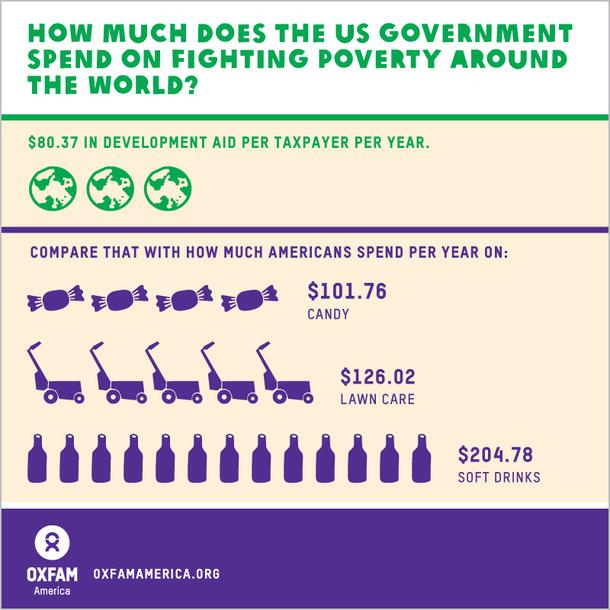 “Beyond Vietnam” speech
“Beyond Vietnam” speech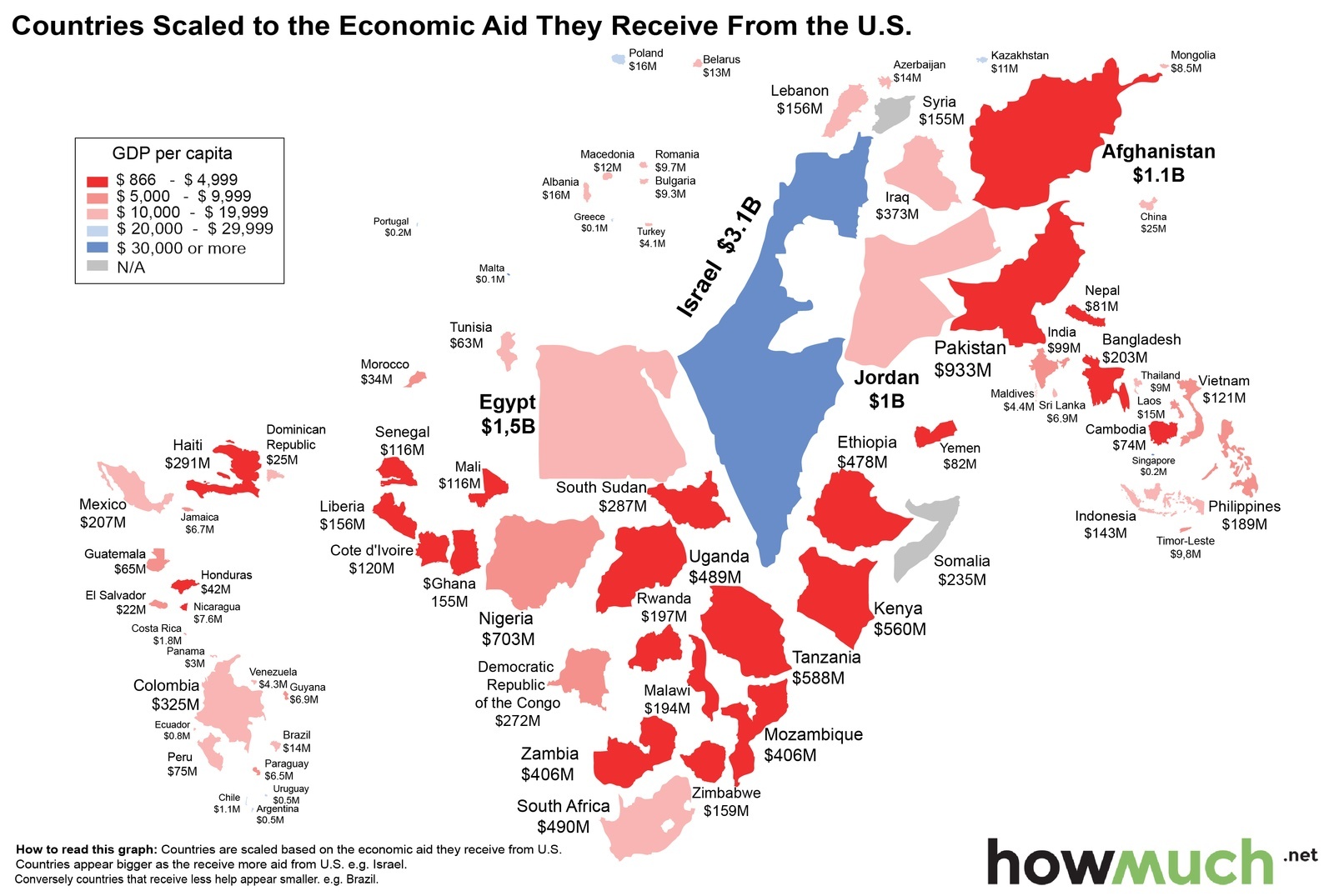 non-military foreign aid is less than 1% of the national budget.
non-military foreign aid is less than 1% of the national budget.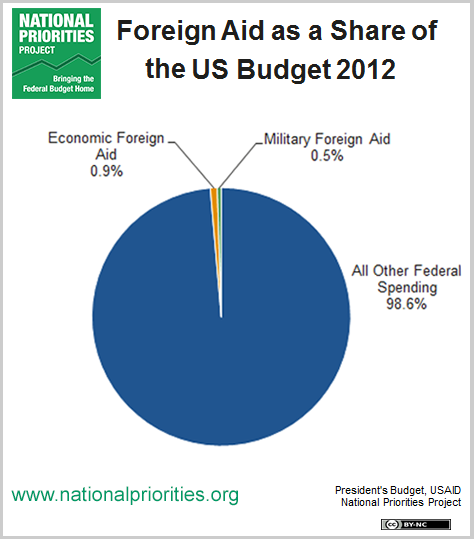 the US share, around 0.38%.” —
the US share, around 0.38%.” — lingered in the area for about 45 minutes during which time Abbott and volunteers with the Love Thy Neighbor charity he founded handed out more than 100 plates of hot chicken stew, pasta, cheesy potatoes and fruit salad to homeless men and women.
lingered in the area for about 45 minutes during which time Abbott and volunteers with the Love Thy Neighbor charity he founded handed out more than 100 plates of hot chicken stew, pasta, cheesy potatoes and fruit salad to homeless men and women. —Alice Walker
—Alice Walker worship inspired by Isaiah 50:4-9a
worship inspired by Isaiah 50:4-9a  Featured this week on prayer&politiks
Featured this week on prayer&politiks portions cited as “kls.” Don’t let the “copyright” notice keep you from circulating material you find here (and elsewhere in this site). Reprint permission is hereby granted in advance for noncommercial purposes.
portions cited as “kls.” Don’t let the “copyright” notice keep you from circulating material you find here (and elsewhere in this site). Reprint permission is hereby granted in advance for noncommercial purposes.
 who turned his life around and is helping to shape the future of his community.” —
who turned his life around and is helping to shape the future of his community.” — end of World War II and September 11, 2001, in which the US struck the first blow. . . . It should be noted that since 1947 . . . in no instance has democratic government come about as a direct result.” —Chalmers Johnson, “Nemesis: The Last Days of the American Republic”
end of World War II and September 11, 2001, in which the US struck the first blow. . . . It should be noted that since 1947 . . . in no instance has democratic government come about as a direct result.” —Chalmers Johnson, “Nemesis: The Last Days of the American Republic” issued in 2010.” —
issued in 2010.” — supply manufacturing, creating economic incentive to ignore efficient planning.
supply manufacturing, creating economic incentive to ignore efficient planning. mercy shall deliver us from the conqueror’s crushing grasp. / This saving word that our forebears heard is the promise which holds us bound, / Till the spear and rod can be quelled by God who is turning the world around.” — Gary Daigle, Rory Cooney & Theresa Donohoo, “
mercy shall deliver us from the conqueror’s crushing grasp. / This saving word that our forebears heard is the promise which holds us bound, / Till the spear and rod can be quelled by God who is turning the world around.” — Gary Daigle, Rory Cooney & Theresa Donohoo, “ authored the majestic hymn, “God of Grace and God of Glory” (see below).
authored the majestic hymn, “God of Grace and God of Glory” (see below). trillion. —
trillion. — secure, damaging lives at home and abroad. —David Vine, "
secure, damaging lives at home and abroad. —David Vine, " truth / And see the lights surrounding you.” —Joan Baez’s rendition of Bob Dylan’s “
truth / And see the lights surrounding you.” —Joan Baez’s rendition of Bob Dylan’s “ Featured this week on prayer&politiks
Featured this week on prayer&politiks
 ¶ Call to worship. “
¶ Call to worship. “ the new House proposal to reshape the health care system. But the new estimates from the Congressional Budget Office contradict this long-held talking point. According to the budget office, the Obamacare markets will remain stable over the long run, if there are no significant changes.” —
the new House proposal to reshape the health care system. But the new estimates from the Congressional Budget Office contradict this long-held talking point. According to the budget office, the Obamacare markets will remain stable over the long run, if there are no significant changes.” — [composed of 35 of the wealthiest democratic nations] the United States as a whole does not actually outshine other countries in the quality of care. . . . Overall, Americans spend far money on health care than citizens of any other country, by a very wide margin.” —Anu Partanen, “
[composed of 35 of the wealthiest democratic nations] the United States as a whole does not actually outshine other countries in the quality of care. . . . Overall, Americans spend far money on health care than citizens of any other country, by a very wide margin.” —Anu Partanen, “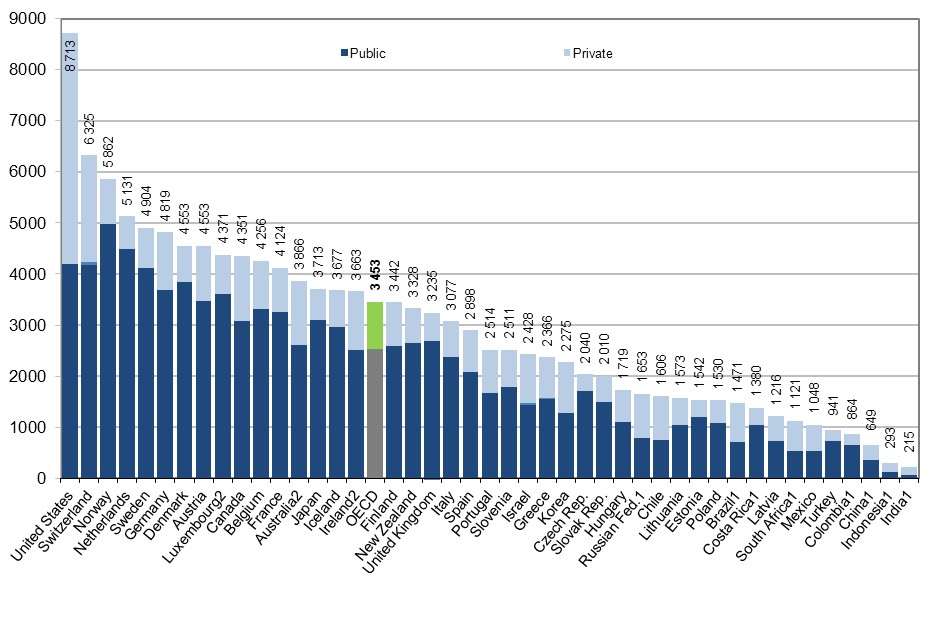
 explain what’s wrong with American health care
explain what’s wrong with American health care average premiums but that “has little to do with increased choice and competition. It depends, rather, on penalizing older patients and rewarding younger ones. According to the CBO report, the bill would make health insurance so unaffordable for many older Americans that they would simply leave the market and join the ranks of the uninsured.” —
average premiums but that “has little to do with increased choice and competition. It depends, rather, on penalizing older patients and rewarding younger ones. According to the CBO report, the bill would make health insurance so unaffordable for many older Americans that they would simply leave the market and join the ranks of the uninsured.” — “My primary responsibility is to Valeant shareholders. We can do anything we want to do. We will continue to make acquisitions, we will continue to move forward.” —“
“My primary responsibility is to Valeant shareholders. We can do anything we want to do. We will continue to make acquisitions, we will continue to move forward.” —“ and less important whether I am afraid.” —Audrey Lorde
and less important whether I am afraid.” —Audrey Lorde Featured this week on prayer&politiks
Featured this week on prayer&politiks
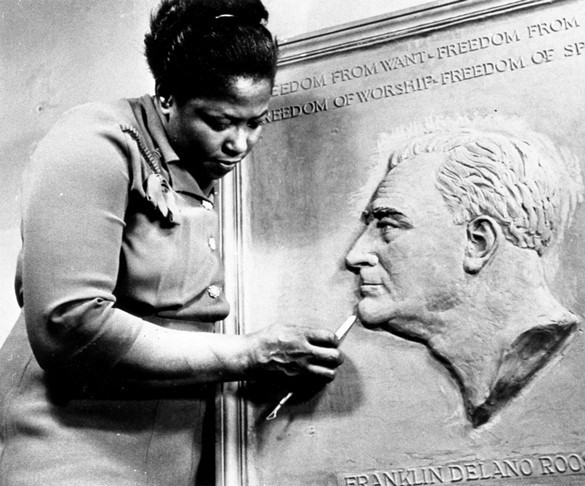 coins, was done by Selma Burke (photo at left), African American sculptor and educator who founded two art schools. —
coins, was done by Selma Burke (photo at left), African American sculptor and educator who founded two art schools. — in the mercy
in the mercy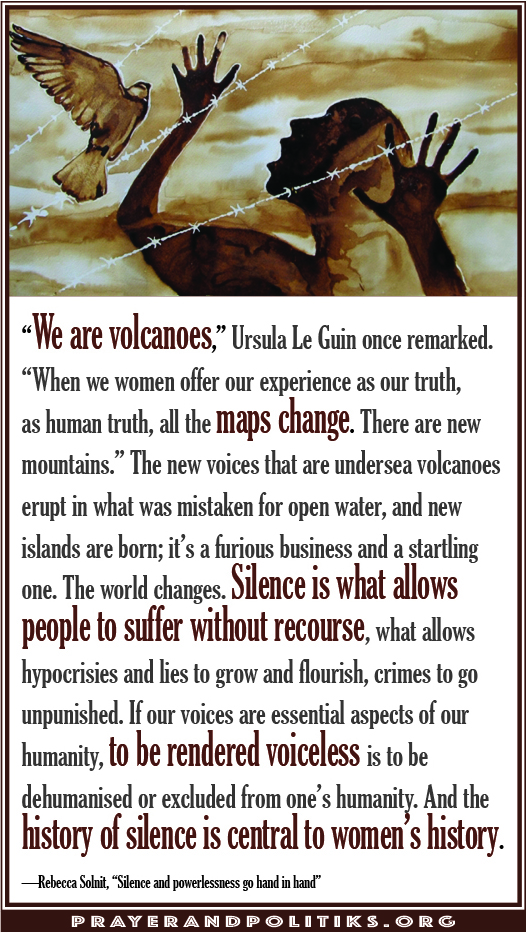 For good.” —Kate Campbell, “
For good.” —Kate Campbell, “ employment, low-paid and unprotected by labor laws or social convention. Women spend 2.5 times more hours in unpaid work such as child care and household responsibilities. Women take home one-tenth of global income while accounting for two-thirds of working hours. At the current pace of change, it will take 170 years to achieve economic equality between men and women. —UN Women Deputy Executive Director Lakshmi Puri, “
employment, low-paid and unprotected by labor laws or social convention. Women spend 2.5 times more hours in unpaid work such as child care and household responsibilities. Women take home one-tenth of global income while accounting for two-thirds of working hours. At the current pace of change, it will take 170 years to achieve economic equality between men and women. —UN Women Deputy Executive Director Lakshmi Puri, “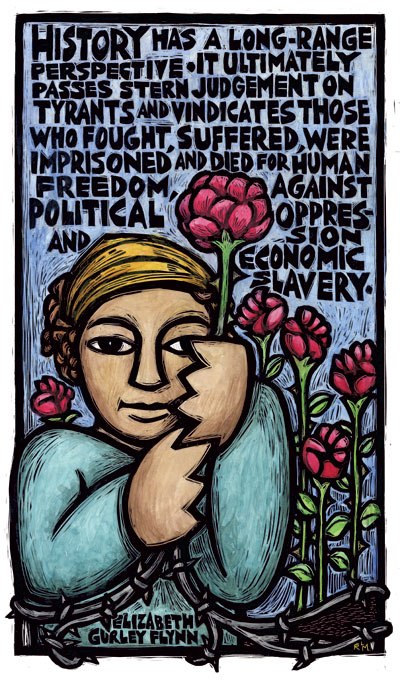 after a judicial panel released a scathing report calling for him to be removed from office.” —
after a judicial panel released a scathing report calling for him to be removed from office.” — Foster, “
Foster, “